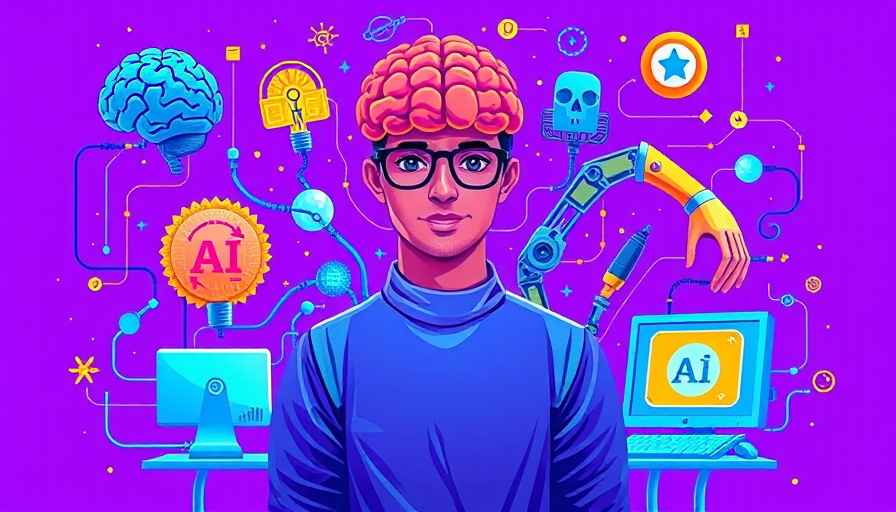
Microsoft's Bold Move to Compete with OpenAI
In an effort to assert its dominance in the AI landscape, Microsoft is pivoting away from its long-standing reliance on OpenAI by developing its own in-house artificial intelligence reasoning models. This strategic shift is aimed at enhancing its flagship products, particularly Microsoft 365 Copilot, and ensuring the company remains a key player in the competitive race for AI technology.
The Drive for Self-Sufficiency
Reports indicate that Microsoft's newest models are being crafted to rival those from OpenAI, particularly as tensions have arisen regarding data sharing and technology access. For instance, OpenAI has been reluctant to disclose the intricacies of its o1 model, which has led to frustration on Microsoft’s part. Microsoft, eager to boost its autonomy in the AI space, is now investing heavily in its MAI (Microsoft Artificial Intelligence) models designed to employ advanced chain-of-thought reasoning techniques.
Exploring Alternatives: A Balancing Act
Aside from developing its own models, Microsoft is reportedly exploring AI technologies from competitors including xAI, Meta, and DeepSeek. The diversification of AI resources aligns with Microsoft's broader strategy to hedge its investments and minimize reliance on any single vendor, including OpenAI. This multi-model approach might also appeal to developers seeking more flexibility and cost-effectiveness in AI solutions.
Transforming Microsoft 365 with AI
One of the critical elements of Microsoft’s strategy involves enhancing its Microsoft 365 Copilot with powerful AI capabilities. As it leans on AI to streamline operations and improve user experiences, using proprietary models not only reduces costs associated with licensing third-party technologies but also positions Microsoft as a leader in AI innovation.
The Future of AI: Predictions and Insights
Looking ahead, we anticipate that Microsoft's AI developments could redefine standards in the tech industry. The release of the MAI models as an application programming interface (API) later this year stands as a promising initiative that could empower developers globally, stimulating innovation across various sectors. As these technologies evolve, the focus will likely shift to balancing ethical considerations with the advancements in AI capabilities.
Implications for Developers and Businesses
For developers and businesses, this shift represents a significant opportunity to leverage new AI technologies that could enhance their products and services. With Microsoft proposing to integrate its own AI models into various applications, businesses may find innovative solutions that better align with their operational needs and customer demands.
Conclusion: Embracing the AI Future
As Microsoft works diligently to advance its AI model capabilities, it’s clear that the tech giant is not just reacting to competition; it's proactively shaping the future of AI technologies. For those invested in the AI landscape, staying informed on these developments will be crucial as the dynamics between major players like Microsoft and OpenAI continue to evolve.
 Add Row
Add Row  Add
Add 




 Add Row
Add Row  Add
Add 

Write A Comment